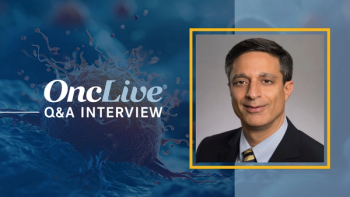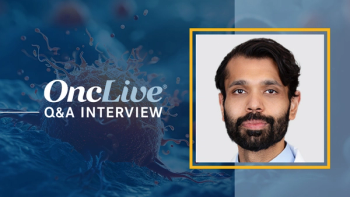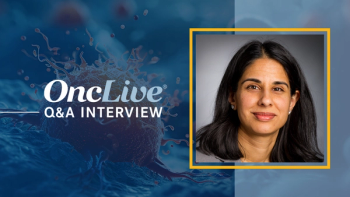
- June 2011
- Volume 12
- Issue 6
4 Questions for Martine Piccart-Gebhart, MD, PhD: Noted Breast Cancer Researcher Has Bright Hopes for HER2 Targets
Martine Piccart-Gebhart, MD, PhD is a professor of oncology at the Universite Libre de Bruxelles and director of the Medicine department at the Jules Bordet Institute in Brussels, Belgium.
Martine J. Piccart-Gebhart, MD, right, discusses developments in breast cancer with Gabriel N. Hortobagyi, MD, FACP, left, and Alan S. Coates, MD, center, at the American Society of Clinical Oncology’s 41st Annual Meeting in Orlando, Florida, in 2005.
Martine Piccart-Gebhart, MD, PhD is a professor of oncology at the Université Libre de Bruxelles and director of the Medicine department at the Jules Bordet Institute in Brussels, Belgium. She is also a founder and chair of the Breast International Group (BIG) and a past president of the European Organization for Research and Treatment of Cancer (EORTC). She is the recipient of numerous awards in recognition of her clinical research into breast cancer.
- What role does HER2 signaling play in normal cells? HER2 is a cell membrane surface-bound receptor tyrosine kinase and is involved in the signal transduction pathways leading to cell growth and differentiation. HER2 is important for growth and repair of normal cells and has a particularly critical role in normal breast and cardiac tissue.
- How important is it in cancer development? HER2 is probably very important in breast cancer development as it is expressed in over 50% of in situ tumors and only around 15% of invasive breast cancer, suggesting that it has a role in the initiation of breast tumors.
- What is the current status of HER2-targeted therapies? Trastuzumab is still the only registered anti-HER2 therapy for early breast cancer. Lapatinib is currently registered in the metastatic setting after failure of trastuzumab. With the results of the Adjuvant Lapatinib and/or Trastuzumab Treatment Optimisation (ALTTO) study due in the next few years, lapatinib may become incorporated into the standard of care. A new trial evaluating the combination of pertuzumab and trastuzumab versus trastuzumab alone is expected to start for early breast cancer patients with HER2 breast cancer late this year. Recent results from the neoadjuvant setting evaluating doublets—pertuzumab and trastuzumab (NeoSPHERE) and lapatinib and trastuzumab (NeoALTTO)—suggest that combination anti-HER2 therapy may be significantly better than single-agent HER2 blockade. There are a number of agents inhibiting the PI3K pathway currently in early- phase testing, which may also be promising in the future in combination with trastuzumab.
- What is the future for HER2 signaling in cancer research? We are in a very exciting era for anti-HER2 agents as there are many promising new agents in development. Clinicians will need to determine the best agents and combinations to test and use. The natural history of HER2 breast cancer has radically changed in the last 10 years, and we should not slow this progress. It is becoming evident that breast cancer patients who overexpress HER2 may not require intensive traditional cytotoxic chemotherapy if given potent anti-HER2 agents. Also, we see different response rates between those HER2 breast cancer patients that are positive or negative for the expression of the estrogen receptor (ER); therefore, different therapeutic approaches and trial design may be required dependent on ER status. Another issue that has yet to be explored is the contribution of the host immune system to clinical outcome with anti-HER2 agents. Trastuzumab has known immunotherapeutic effects, and it is unclear how important these are for the patient, or if certain women derive different benefit from a monoclonal antibody depending on their immune system. New agents that “boost” host immunity against tumor cells are currently available and should be explored.
Articles in this issue
over 14 years ago
The Internet Dilemma: Awash in Information, Drowning in Ignoranceover 14 years ago
OncLive June 2011 FDA Digestover 14 years ago
PER Gatherings Focus on Breast, Lung Cancersover 14 years ago
Smart Moves? E-patient Systems Rise Amid Skepticism


































